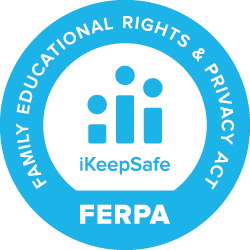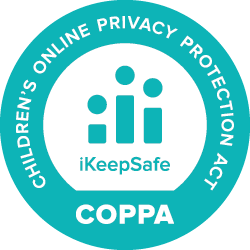Live Event: May 10, 2018 at 1:00pm Eastern (US)
Guillermo Caravantes is a Volcanologist and CEO of GeoArc Foundation, where he is working to record the internal dynamics of a lava lake, building the first house able to withstand deadly pyroclastic flows from volcanoes (the PyroHouse), and searching for new species in a Central American crater. We asked him a few questions about himself and his STEM career to get to know him and his work a bit better before his live event.
About Guillermo
Name: Guillermo Caravantes
Title: CEO, PhD
Layman’s Title: Volcanologist
Company: The GeoArc Foundation
Years in this organization/position?
2
What does your organization do?
We pioneer one-of-a-kind (really, one-of-a-kind) scientific projects to the world’s ultimate research frontiers.
What is your role in the organization?
I am the CEO of the company. I oversee the development of projects, from inception to implementation. Part of my role is also to contact potential partners and find angles in which we can collaborate to make truly extraordinary things happen.
What type of science, technology, engineering or math do you use in your career? And how often do you use them?
I use a combination of those on an everyday basis, not only when I am in the field – from the knowledge on volcanic systems required to undertake certain kinds of of experiments, to the employment of advanced tech that allows us to go one step further, and the maths to do all the calculations. But if I have to choose one of them I think engineering would have to be it: we are always scratching our heads thinking about what’s possible, difficult, extreme, or just plain impossible, and then solving those problems. But its not me alone, , at the end of the day, truly unique things can only happen when you bring together multidisciplinary teams.
How is the work you do important to society?
By design, every single project we tackle must improve the safety of those vulnerable to natural hazards, help young and eager local scientists acquire skills, and/or be beneficial to the local economy. Point number 2 in our Ethos literally says: “Every project must be scientifically meaningful and benefit people’s lives”. We never even consider any project until a real need has been identified.
We also aim to be a different organization in our relationship with the countries we visit, most of them emerging countries. Not only do we value local knowledge but we prove it by always partnering with local scientists and technicians, Most people would be surprised by the tremendous learning opportunities that provides for everyone in our teams.
What accomplishments are you most proud of in your current role?
I would have to say our amazing 2017 expedition – called the Lava Lake Laboratory and sponsored by the Petzl Foundation – to Masaya Volcano in Nicaragua, in which we were the first team to ever measure the gases above an active lava lake for hours with our custom built 3 legged Rope Access System and customized Alphasense multigas sensors vertically suspended over the lake. The trick here is that we had to do that over a massive 2000 feet wide, 1500 feet deep crater full of corrosive gas that starts degrading the gear as soon as it gets exposed to it.
We also managed to touch the lava stream with our system with the purpose of sampling it, a massive challenge in itself. Keep in mind that lava doesn’t just float around inside Masaya crater, but it behaves like a pressurized jet of high density/viscosity that crosses the internal crater with the power and speed of tens of freight trains. The challenges this entails are countless. At the end, we didn’t manage to recover a sample because our sampling device was ripped off the system by this massive current, but luckily our system was so well designed that it resisted the drag, protecting the Rope Access Technicians operating it.
What projects or goals are you currently pursuing?
We are developing a number of projects simultaneously, and building strong partnerships with global companies capable of working with us to turn wonderful ideas into inspiring adventures for the benefit of mankind. From a pioneering mission to record the internal dynamics of a lava lake (Erta Ale, Ethiopia), to building the first house able to withstand deadly pyroclastic flows from volcanoes (the PyroHouse), to the search of new species in a sort of “Lost World” in a Central American crater. Our projects tackle challenges like climate change, natural hazards, clean energy, etc, and they all strive to inspire newer generations to pursue STEM careers.
What are the biggest challenges you face in your work?
First, we want to push the boundaries of science and innovation, and that never comes easy. It is also difficult sometimes to translate an inspiring vision you’ve had and make it accessible to a wider audience.
We have found that young kids sometimes better understand the ideas behind our projects than older generations, mainly because they allow their imaginations to fly more freely and aren’t so biased or constrained by what we think we know.
What is the most exciting, most amazing, or scariest thing that has happened to you during your work?
I’ve had to rescue a friend from a meltwater pool at a glacier front in the Arctic, been at close distance from 1300 pound polar bears and seen chunks of lava erupted from a lava lake rolling downhill towards me at high speeds. But the scariest moment I’ve lived by far was in 2009, when a 6.1 earthquake in Costa Rica (the Cinchona earthquake) shook the volcano where I was working like it was pudding, and made us believe an imminent eruption was likely. After some time making our way out of the crater, we discovered that around 100 people had sadly been killed by the earthquake.
Highest degree attained/ Schools attended?
I have the Spanish equivalent of a BSc from the Universidad Complutense of Madrid (Spain), and I hold a PhD in Volcanology from the Open University (United Kingdom). I also have an undergraduate certificate in Arctic Geology from the University in Svalbard, UNIS (Norway).
What educational accomplishments are you most proud of?
When I was in Italy with an Erasmus scholarship (the premier scheme for students throughout the European Union who wish to study abroad), I was forced to complete 1 and a half years of courses in a different language in less than 9 months in order to get a shot at a PhD opportunity in volcanology, and I did (although it wasn’t easy).
What kinds of challenges did you overcome during your education?
I went through a phase in which my grades and performance were affected due to the pressure of competition with other students. It wasn’t until I matured a bit and I realized I was studying for myself, and not against others, that I recovered my pace and started to enjoy my degree again.
Previous employers and positions that have lead to your current role
Apart from remaining a Visiting Research Fellow at the Open University since I finished my degree, I have worked for years as an Interpretation Geophysicist and also a Field Geophysicist for a British company called Bridgeporth, having led several exploration campaigns mainly in frontier locations in Africa. That has been instrumental in me getting a lot of experience in the organization/planning of extreme expeditions.
Other positions not necessarily related to your current career
I have worked as a barista at Starbucks in Ireland, while I was trying to improve my English. And I was terrible at it! I also worked at a storage facility for sport clothing in Northern Spain, moving boxes from one place to another.
Best job you’ve ever had and why/Worst job you’ve ever had and why
The best would have to be my current job. When would I get a chance to stare face to face to a roaring, but mesmerizing lava lake otherwise?? The worst job was probably the one in Starbucks. I wasn’t too convinced by some of the practices I saw, from corporate responsibility to organizational issues within the company, but that doesn’t change the fact that I wasn’t the most talented barista for them either!
What were you like as a kid?
I was a bit shy and lazy at times, but also a clever boy, with an interest in everything, especially everything that wasn’t my formal studies. I love my parents, and had the utmost respect for them, which means that today I get to enjoy a great relationship with them. They were both university professors, so they also had (and have until today) fantastic advice for me that I have not always -regrettably- followed.
Favorite classes/coursework in elementary school, middle school, high school, college
In elementary school I was very good in Spanish. That has helped me build a mindset that later on came in handy when I started learning other languages. In middle school I loved English, because it felt very easy to me. Little did I know that years later, when I lived in an English speaking country for the first time in my life, I discovered that I actually couldn’t speak at all! I also loved geology in high school, I only studied it for one year but it was an eye opener to me. And in college, I loved the tectonics and structural geology courses. Something about the idea of massive tectonic plates crashing against each other and fracturing everything in their path was very inspiring to me.
What were your favorite books/shows/movies when you were a kid?
The Lord of the Rings, Indiana Jones, the Goonies. I enjoyed a broad spectrum of things, but those books and movies that had to do with exploration and adventure were the ones that really resonated with me.
What did you think you were going to be when you grew up at age 12? At age 15? At age 18?
At 12 and 15 I was absolutely convinced I was going to be a psychiatrist. I always loved the idea, and didn’t change mind until I was 17 and a half. At that point I turned 180 degrees, and decided I would like to be a geologist, to my parents surprise.
When did you know you wanted to pursue your current career, and what drove you towards it?
At 17 I had a fantastic geology teacher that helped me realize a) I was good at it, and b) it would give me the opportunity to be outdoors, which I really loved. So I changed path right before applying to get into university.
If you weren’t doing what you’re doing now, what other career(s) might you have pursued?
I have always had an interest in investigative journalism, I grew up admiring Spanish journalists that faced prosecution for uncovering government misconduct in Spain in the 1980s. I am also very interested in Theology, and have become an avid reader of theological topics lately.
What are your favorite hobbies or activities you do for fun?
I love outdoor sports, and hiking in the mountains would have to be my first choice. But I also love spending time with my friends and family, cooking, reading…
Do you play any musical instruments or play any sports?
I do not play any musical instrument, because I wasn’t very motivated as a kid to do so. I do play basketball every now and then, and cycle, but since I had an injury in my left knee a year ago I’ve stopped a bit. I absolutely need to resume.
What is your favorite non-science book, magazine, or blog?
The Silmarillion, by JRR Tolkien.
What’s the most frequently played song on your mp3 player (or other music-playing device)?
Funny enough, I don’t have any playing music device, I normally use idle time in the bus or underground to read.
Who do you look up to and admire?
I’d have to say Martin Luther, the Reformer (16th Century), who stood up in a time of great pressure and valiantly defied the formal deliberative assembly which was judging him with the following words: ”it is neither safe nor right to go against conscience”.
What advice would you give a student interested in pursuing your career?
As my Dad use to say, make sure you don’t just limit to what’s in the syllabus. If you have a true interest for something, use it to fuel your curiosity and think outside the box. Can you talk to people in the field and help them with any task, even if it seems trivial at the beginning? Can you read material in your field to increase your familiarity with the topic?
What advice would you give students in general?
You are in a very important phase of your lives, true, but don’t be obsessed if things don’t go exactly as you plan today; there is always time to stand up again if you fall. The main thing is you should make sure you treat each other with respect and honesty, you don’t want to wake up 30 years from now and look back with regret at these days.
What are some interesting places you’ve traveled?
Madagascar and Nicaragua are the places where I’ve found the most friendly, amazing people in the world. But if I had to choose with natural beauty in mind, I think probably Svalbard. Svalbard is an archipelago north of Norway which is so remote that there are more polar bears in the islands than people. That means you have to carry a gun most of the time, even if you leave town for a short walk. But that danger was compensated by the mesmerizing aurora borealis, the majesty of the glaciers and the surprising midnight sun.
For more about GeoArc watch: https://www.youtube.com/watch?v=VKhPMGqVUZo


